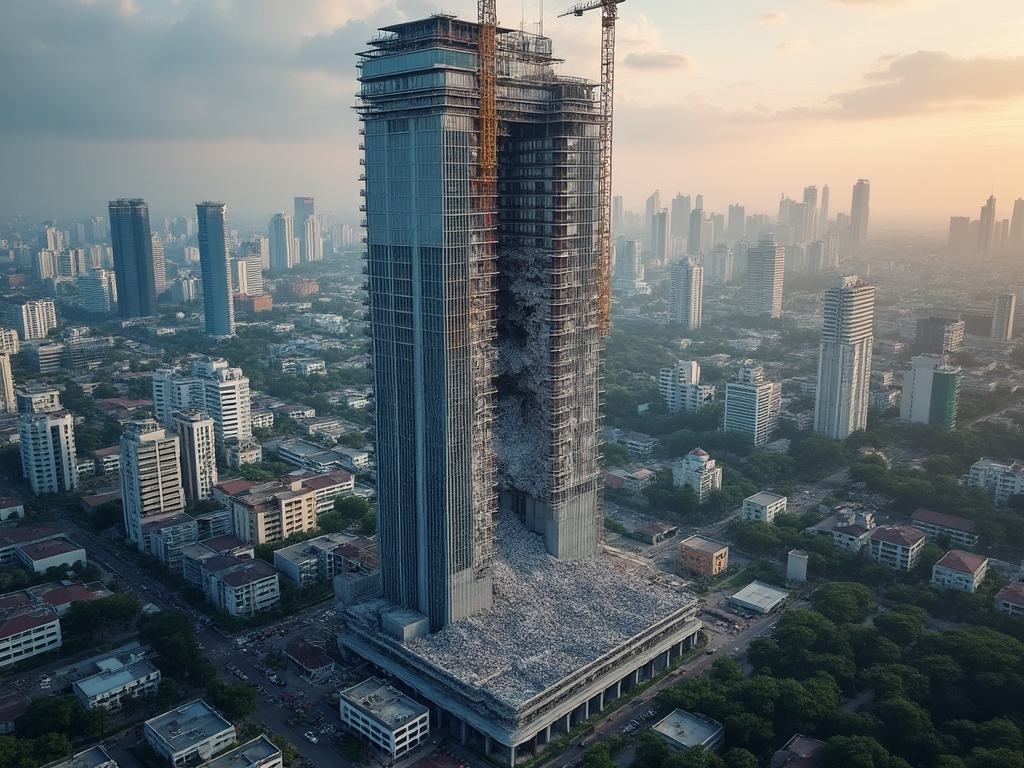
Supporters of the former Philippine president spread falsehoods online in response to his detention by the International Criminal Court.
Former Philippine President Rodrigo Duterte was arrested at the Manila airport on March 11 as he returned from Hong Kong, acting under an arrest warrant issued by the International Criminal Court (ICC) related to charges of crimes against humanity stemming from his administration’s war on drugs, which resulted in thousands of extrajudicial killings.
After his arrest, Duterte was placed on a government-funded private flight to The Hague to face the charges.
Immediately following his arrest, a significant surge of online misinformation emerged from Duterte's supporters.
Analysts point out that this disinformation campaign may be detrimental to his legal proceedings rather than beneficial.
Such false narratives include claims that the Philippine Supreme Court had issued a temporary restraining order against Duterte's transfer to the ICC.
Upon his initial appearance before ICC judges on March 14, some supporters incorrectly claimed that the case against him had been dismissed, despite the fact that the judges scheduled the first substantive hearing for September.
Legal experts, including Joel Butuyan, president of the Centre for International Law and one of the few Filipino lawyers accredited by the ICC, have suggested that while misinformation may not impact the merits of his case, it could influence any potential application for interim release.
The range of fabricated stories has varied widely in scope and severity.
One notable claim suggested that Russian President Vladimir Putin had refused peace talks with Ukraine until the ICC ceased its proceedings against Duterte.
Another rumor alleged that the Philippine Supreme Court had received a petition with 16 million signatures requesting the resignation of President Ferdinand Marcos Jr., leading to an imminent ruling.
In related news, the annual Balikatan military exercises between the United States and the Philippines are set to occur from April 21 to May 9, 2025. This year's drills will include a full battle simulation featuring live-fire missile tests and the controlled sinking of the decommissioned Philippine Navy vessel BRP Miguel Malvar.
The exercises aim to display the capabilities of newly acquired military equipment, including the Philippine Air Force's Spyder mobile air defense systems, procured from Israel.
The Navy will utilize its French-made Mistral 3 surface-to-air missiles aboard frigates BRP Jose Rizal and BRP Antonio Luna.
According to Brigadier General Michael Logico, the exercises will focus on enhancing interoperability and the bilateral defense strategy of the Philippines.
After his arrest, Duterte was placed on a government-funded private flight to The Hague to face the charges.
Immediately following his arrest, a significant surge of online misinformation emerged from Duterte's supporters.
Analysts point out that this disinformation campaign may be detrimental to his legal proceedings rather than beneficial.
Such false narratives include claims that the Philippine Supreme Court had issued a temporary restraining order against Duterte's transfer to the ICC.
Upon his initial appearance before ICC judges on March 14, some supporters incorrectly claimed that the case against him had been dismissed, despite the fact that the judges scheduled the first substantive hearing for September.
Legal experts, including Joel Butuyan, president of the Centre for International Law and one of the few Filipino lawyers accredited by the ICC, have suggested that while misinformation may not impact the merits of his case, it could influence any potential application for interim release.
The range of fabricated stories has varied widely in scope and severity.
One notable claim suggested that Russian President Vladimir Putin had refused peace talks with Ukraine until the ICC ceased its proceedings against Duterte.
Another rumor alleged that the Philippine Supreme Court had received a petition with 16 million signatures requesting the resignation of President Ferdinand Marcos Jr., leading to an imminent ruling.
In related news, the annual Balikatan military exercises between the United States and the Philippines are set to occur from April 21 to May 9, 2025. This year's drills will include a full battle simulation featuring live-fire missile tests and the controlled sinking of the decommissioned Philippine Navy vessel BRP Miguel Malvar.
The exercises aim to display the capabilities of newly acquired military equipment, including the Philippine Air Force's Spyder mobile air defense systems, procured from Israel.
The Navy will utilize its French-made Mistral 3 surface-to-air missiles aboard frigates BRP Jose Rizal and BRP Antonio Luna.
According to Brigadier General Michael Logico, the exercises will focus on enhancing interoperability and the bilateral defense strategy of the Philippines.





































